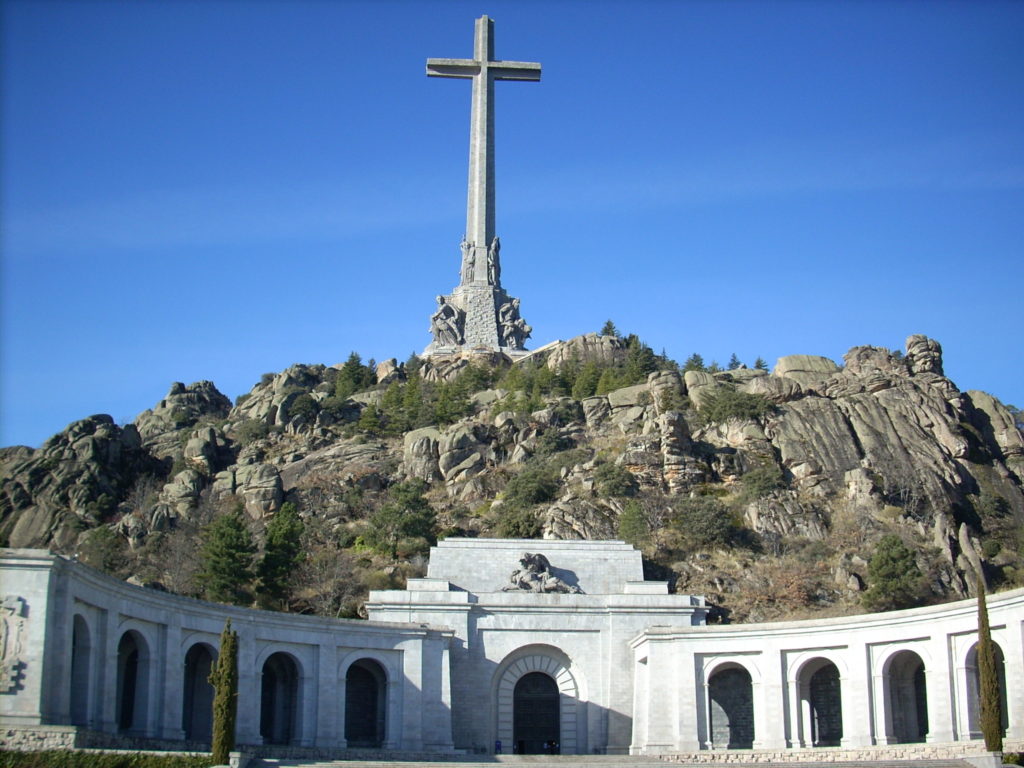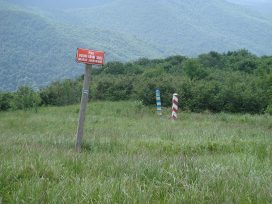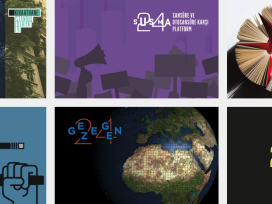Spanish comedian Dani Mateo referred to the Valle de los Caídos (Valley of the Fallen), a monument built by Franco’s regime, as ‘shit’ last May. He did it during a satirical television show, but the Asociación para la Defensa del Valle de los Caídos (the Association for the Defence of the Valley of the Fallen) accused him of insulting religious feelings. A year later, this May, Mateo was called to testify before a judge.
‘This is stupid and no decent tribunal would condemn him,’ said Spanish comedian Miguel Lago. ‘I would tell the judiciary to prosecute criminals, not comedians.’

Part of the Francoist Valle de los Caídos (‘Valley of the Fallen’) Spanish Civil War memorial. Source: Pablo Forcén Soler / Wikimedia
This is the latest in a series of recent prosecutions against journalists, comedians and social network users that have raised the alarm about the health of freedom of expression in Spain. The legal framework that is allowing these prosecutions has been pushed through by the party currently in power, the conservative Partido Popular.
These developments may have their roots in popular unrest. An increase in corruption cases, money laundering and influence peddling among members of the Partido Popular – in power since 2011 – has led to protests and growing criticism of the government on social media and by journalists and comedians. With new political movements such as Podemos or Ciudadanos also adding to the pressure on the establishment, this political flux could be motivating the increase in prosecutions.
Virginia Álvarez, homeland policy spokeswoman for Amnesty International, said the citizen security law, passed in 2015, caused a public outcry because it ‘allows the prosecution of journalists for reporting police interventions… which attacks the right to inform’. The law was passed in parliament with the votes of the Partido Popular, but with no support from other parties.
Moreover, the 2015 reforms created a range of terrorism offences. For example, ‘glorifying terrorism’, under article 578, allows wide interpretation and is left to the discretion of judges. Last year, two puppeteers were jailed over a satirical performance in Madrid that included a sign with the word ‘alka-ETA’, a combination of al-Qaeda and the Basque separatist group ETA. Article 510, which punishes hate crimes, is also being used to limit citizens’ rights.
The reforms were made to fight jihadist terrorism which, as stated in the penal code, ‘includes new forms of aggression by using new recruitment and indoctrination instruments’. Álvarez denounced this reasoning. ‘This is not preventing terrorism crimes but allowing the state to act against humorous comments,’ she said. ‘Governments are using the insecurity caused by terrorism to curb freedoms and deactivate social movements.’
Thousands of people have protested against the changes, and human rights groups and the Spanish opposition have fiercely opposed it. There has also been a ratcheting up of criticism in the media, with a growing number of critical editorials and commentary. This, in turn, has led to more prosecutions, creating a vicious circle.
Facu Díaz, a comedian who was prosecuted last year for posting jokes on Twitter, said: ‘The same court is judging jihadists and people that post jokes.’ For Díaz, police involvement in itself is a matter of concern. ‘They don’t have experience in social media. It’s like giving a gun to a monkey.’
These legal proceedings seem to be aimed at challenging media support for the accused. ‘There is great pressure, and judges feel they have to set an example, even though it might be unpopular. Otherwise, [this] might not have led to prison sentences,’ said Raúl Pardo, a leading criminal lawyer.
Comedian and actor Álex O’Dogherty said: ‘These attacks are trying to make us afraid of raising our voices. Who decides what constitutes an offence? We need to worry about facts, not words.’
Mateo’s case is just one of several that worry freedom-of-expression defenders. In April, 21-year-old Cassandra Vera was sentenced to a year in prison for posting jokes about Luis Carrero Blanco, the president during the last years of Franco’s dictatorship who was murdered by ETA in 1973. Also in April, three women were accused of a ‘religious hate crime’ for mocking an Easter procession in Seville by carrying a giant plastic vagina as a feminist protest.
This repressive path is threatening social agitators and free thinkers, and therefore the exercise of democratic rights.
Despite all this, there is room for hope. ‘Spain will never lose its sense of humour,’ said comedian Ana Morgade. ‘We are stripping comedy of what makes it funny… But this does not mean we cannot retrace our steps.’
This article was published in the Summer 2017 issue of Index on Censorship. You can find out more about the magazine here.







